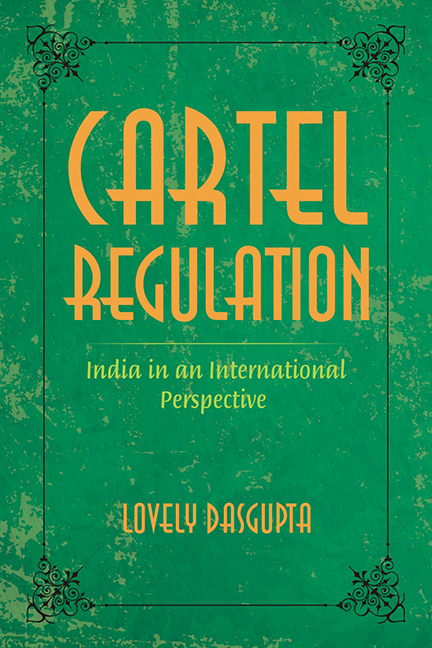Book contents
- Frontmatter
- Contents
- Preface
- Abbreviations
- 1 Introduction
- 2 Cartels: Understanding the Sum and Substance of the Concept
- 3 Cartels and Consumer Interests in the US
- 4 EU, Cartels and Consumer Interests
- 5 India, Cartels and Consumer Interests: The MRTP Phase
- 6 Cartels, Consumer Interests and India Post-MRTP Phase
- Conclusion
- Appendix 1
- Appendix 2
- Bibliography
- Index
3 - Cartels and Consumer Interests in the US
Published online by Cambridge University Press: 29 November 2022
- Frontmatter
- Contents
- Preface
- Abbreviations
- 1 Introduction
- 2 Cartels: Understanding the Sum and Substance of the Concept
- 3 Cartels and Consumer Interests in the US
- 4 EU, Cartels and Consumer Interests
- 5 India, Cartels and Consumer Interests: The MRTP Phase
- 6 Cartels, Consumer Interests and India Post-MRTP Phase
- Conclusion
- Appendix 1
- Appendix 2
- Bibliography
- Index
Summary
Context
This chapter is an evaluation of the theoretical framework that has developed in the US for the purpose of dealing with cartels. The examination begins by outlining the debate that preceded the passage of the Sherman Act. This would help in identifying the approach of the legislators towards cartels. Thereafter, the interpretation of the Sherman Act by the US Supreme Court will be evaluated in order to cull out the various approaches developed towards cartels. This is important in understanding the reasons that led to the development of the different approaches. It will also highlight the method used to distinguish between legitimate horizontal cooperation and cartels. Further, it will also be educative in understanding how far the interest of different stake holders, like the small and medium enterprises and the end consumers got factored in while developing the appropriate response towards cartels. Finally, the approaches of various enforcement agencies against cartels will be evaluated to find out how much importance consumer interest receives. In the process, the chapter answers the following questions: does the application of the ancillary restraint concept helps in distinguishing a cartel from other cooperative horizontal agreements? which approach, viz., the per se or the rule of reason, best accommodates consumer interest?
The Sherman Act and cartels: The beginning of the story
The consumer movement forced legal intervention in the US against trusts which were the cartels of America. The legislation that epitomizes this intervention is the Sherman Act (hereinafter called the Act). The Sherman bill, as envisioned and mentored by Senator John Sherman of Ohio, had the following operative language:
‘‘That all arrangements, contracts, agreements, trusts, or combinations… made with a view, or which tend to prevent full and free competition… or which tend to advance the cost to the consumer…are hereby declared to be against public policy, unlawful, and void’.’
This anti-trust bill, after several sessions of debate in the US Congress, was referred to a committee for further deliberations. The outcome was a new bill substituting Senator Sherman's bill. The language of this new bill was completely different from the original.
- Type
- Chapter
- Information
- Cartel RegulationIndia in an International Perspective, pp. 46 - 83Publisher: Foundation BooksPrint publication year: 2014



